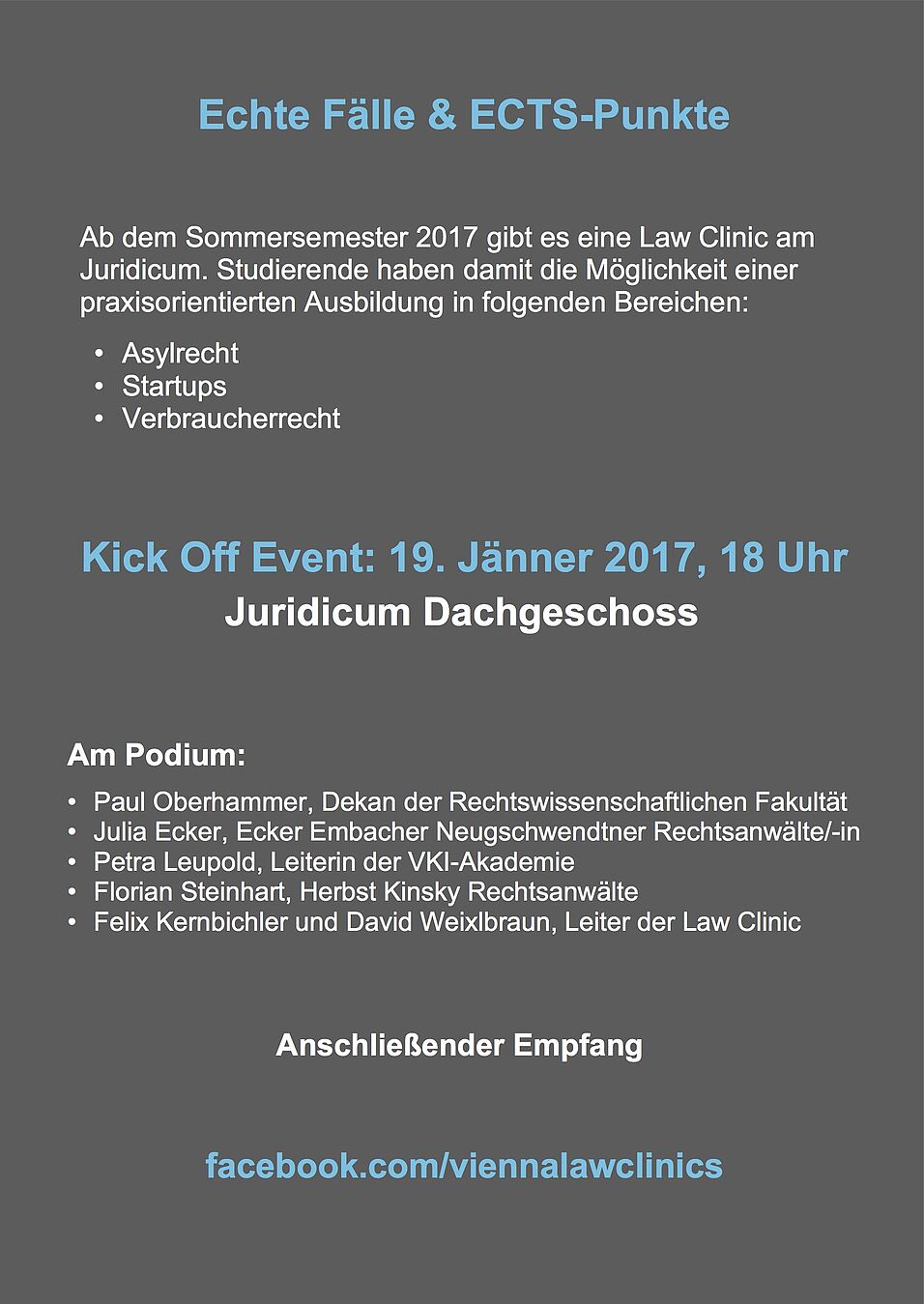Echte Fälle & ECTS-Punkte
Wir bringen die Law Clinic im Sommersemester 2017 an das Juridicum. Es wird einschlägige Lehrveranstaltungen in den Bereichen Asylrecht, Startups und Verbraucherrecht geben. Anschließend können Studierende im Rahmen des Studiums beratend tätig werden. Für beides können sie in ihrem Diplom- oder Doktoratsstudium ECTS-Punkte erwerben.
Mehr zu dem Konzept der Law Clinic, den Vortragenden und den Voraussetzungen für eine Teilnahme erfahren Sie bei unserem Kick Off Event am 19. Jänner 2017 um 18:00 Uhr im Dachgeschoss des Juridicums.
Wir freuen uns auf Sie!

